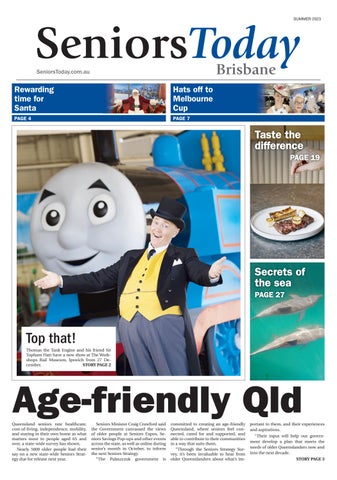New research from nbn reveals connected Queenslanders want technologies that can help keep households physically safe (47 per cent), enable elderly relatives to live independently for longer (35 per cent) and help protect households during natural disaster events (33 per cent) in their homes 10 years from now. One third of respondents (33 per cent) also want more remote health and wellbeing support delivered from home in the future.
With data use on the nbn® network tripling in the past six years, nbn commissioned the Home of the future study to learn more about how Australians are using technologies in their homes today, how technology will play a role in homes a decade from now and understand Australia’s appetite for immersive technologies.
Using connected technologies such as security cameras, motion sensors, smart locks and kids GPS trackers to keep households physically safe was the clear winner across every state and territory except the NT, Tasmania and the ACT, where technologies that provide remote health and wellbeing support ranked number one.
One in three Queenslanders with home Wi-Fi (35 per cent) welcomed the opportunity for technology to play a bigger role in helping elderly relatives enjoy independent living for longer. Motion sensors that notify family members when no activity is detected in a set period of time – potentially indicating a fall – and smart kettles with smartphone functionality are just two examples of supportive technologies available today.
Among Queenslanders with home Wi-Fi, one in five (21 per cent) use their broadband for telehealth consultations today, and one in three (33 per cent) say they’re interested in having more health and wellbeing technologies in their homes in the future.
The pandemic was a huge disruptor to the traditional methods of receiving healthcare with blood pressure, daily glucose levels, weight management and general wellbeing data now able to be sent to doctors in real time thanks to connected technologies.
Looking ahead, smart thermometers and smart scales are two examples of connected technologies helping to drive a generational shift in how Aussies manage their health, moving from trying to ‘fix’ health issues to getting ahead of them to live longer, better lives.
For Queenslanders seeking to reduce their home’s environmental impact (31 per cent), smart energy meters can provide near real time information on energy use, while water sensors and smart gardening devices can help ensure households only use the water they need, saving precious resources and money.








